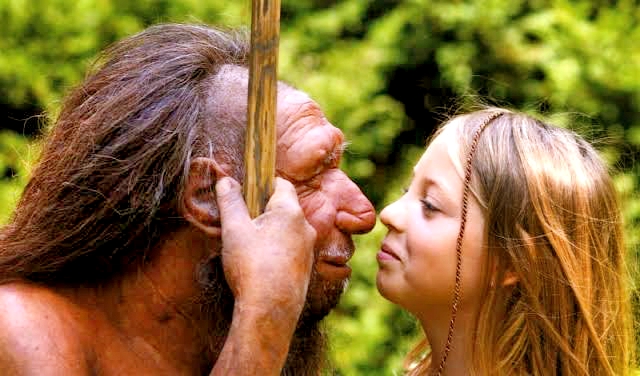Introduction
Morality is a fundamental aspect of human life, guiding our behavior, emotions, and social interactions. Yet, the origins of morality remain a subject of debate among scholars, philosophers, and scientists. One of the most influential works in this field is the book “Moral Origins: The Evolution of Virtue, Altruism, and Shame” by Christopher Boehm. Published in 2012, Boehm’s book provides a comprehensive account of the evolution of morality from the perspective of human societies and the behavioral ecology of our primate ancestors. In this article, we will review the key arguments and scientific data presented in the book, drawing on relevant research and examples to illustrate its insights.
Overview of “Moral Origins”
Boehm’s book starts with an important premise: morality is not a product of individual psychology or cultural norms, but rather a result of evolutionary processes that shaped human social behavior over millions of years. According to Boehm, humans share many social and cognitive traits with other primates, such as empathy, cooperation, communication, and social learning. However, what distinguishes humans from other primates is our ability to create and enforce moral norms that regulate behavior beyond kinship ties and immediate self-interest. This ability, Boehm argues, emerged through a long and complex history of social selection and cultural transmission, involving various mechanisms of social control, such as altruistic punishment, reputation management, and shame.
One of the main themes of “Moral Origins” is the role of group-level selection in shaping human morality. Group selection refers to the idea that traits that benefit the group as a whole, rather than just individuals, can be favored by natural selection if they enhance the survival and reproductive success of the group. Boehm argues that human morality evolved primarily as a result of group selection, which operated at different levels of social organization, from small bands of hunter-gatherers to large-scale societies with complex division of labor and political systems. Group selection favored traits such as reciprocity, trust, fairness, and cooperation, which enabled groups to solve collective action problems, coordinate activities, and compete with other groups.
Another key theme of “Moral Origins” is the role of cultural evolution in shaping human morality. Cultural evolution refers to the process by which ideas, beliefs, and practices are transmitted from one generation to another through social learning and imitation. According to Boehm, cultural evolution played a crucial role in the emergence and spread of moral norms that regulate behavior in diverse contexts, from sharing food to resolving conflicts to punishing wrongdoers. Cultural evolution also enabled humans to develop cognitive and linguistic abilities that facilitated the transmission and enforcement of moral norms, such as theory of mind, language, and moral emotions.
Empirical evidence supporting “Moral Origins”
Boehm’s account of the evolution of morality is supported by a wide range of empirical evidence from various fields of research, such as primatology, anthropology, archaeology, psychology, and neuroscience. For example, studies of non-human primates have shown that they exhibit many of the same social and cognitive traits as humans, such as cooperation, empathy, communication, and social learning. For instance, a study by de Waal and colleagues (2008) found that chimpanzees are able to understand the goals and intentions of their groupmates, and to help them achieve their goals even if there is no direct benefit for themselves. This suggests that empathy and cooperation are not uniquely human traits, but rather shared with other primates.
Similarly, studies of hunter-gatherer societies have revealed the importance of reciprocity, trust, and fairness in maintaining social cohesion and resolving conflicts. For example, a study by Gurven and colleagues (2006) found that the Tsimane’ people, a hunter-gatherer society in Bolivia, engage in frequent acts of gift-giving, food sharing, and cooperative labor, which help to build and maintain social relationships based on mutual trust and obligation. This suggests that reciprocity and trust are not only adaptive in small-scale societies, but also have deep roots in human evolutionary history.
In addition, archaeological and historical evidence supports the idea that moral norms and practices have evolved over time through cultural transmission and selection. For example, a study by Henrich and Boyd (2001) found that the spread of prosocial religions, such as Christianity and Islam, contributed to the development of cooperative norms and institutions that facilitated the expansion of large-scale societies. Similarly, a study by Turchin and colleagues (2018) found that the rise and fall of empires throughout history can be explained in part by the emergence and spread of moralizing religions that promoted prosocial norms and collective identity.
Moreover, neuroscientific studies have shed light on the neural and hormonal mechanisms underlying moral behavior and emotions. For example, a study by Knoch and colleagues (2006) found that participants who were given the opportunity to punish unfair behavior in an economic game showed increased activity in the anterior cingulate cortex, a brain region associated with conflict detection and moral decision-making. Similarly, a study by Zak and colleagues (2005) found that oxytocin, a hormone involved in social bonding and trust, can increase generosity and cooperation in economic games.
Implications and critiques of “Moral Origins”
Boehm’s book has important implications for understanding the nature and origins of human morality, as well as for informing debates about ethical and political issues. By emphasizing the role of group-level selection and cultural evolution in shaping morality, Boehm challenges individualistic and relativistic views of morality that see it as a product of personal preference or cultural convention. Moreover, by highlighting the importance of social control mechanisms, such as shame and altruistic punishment, Boehm provides a nuanced account of the complexity and diversity of moral norms and practices across different societies and historical periods.
However, “Moral Origins” has also received some critiques from scholars who question its assumptions and conclusions. One critique is that the book overlooks the role of individual-level selection and genetic factors in shaping moral behavior and emotions. For example, some researchers argue that genetic variation in oxytocin receptors and other genes involved in social behavior may influence individual differences in moral cognition and emotion (Fowler et al., 2013). Moreover, some critics argue that the book underestimates the role of cultural variation and contingency in shaping moral norms and practices, and overemphasizes the universality and stability of moral principles across societies and historical periods (Henrich et al., 2010).
Conclusion
In summary, “Moral Origins: The Evolution of Virtue, Altruism, and Shame” by Christopher Boehm provides a comprehensive and insightful account of the evolution of morality from a biological, cultural, and historical perspective. Drawing on a wide range of scientific evidence, Boehm argues that human morality evolved primarily as a result of group-level selection and cultural evolution, which favored traits such as reciprocity, trust, fairness, and cooperation, and enabled the emergence and spread of moral norms and practices. While the book has been subject to some critiques and debates, it remains a seminal work in the field of evolutionary morality, and a valuable resource for scholars and students interested in understanding the nature and origins of human morality.
References:
1 – Boehm, C. (2012). Moral origins: The evolution of virtue, altruism, and shame. Basic Books.
2 – Fowler, J. H., Johnson, T., & Smirnov, O. (2013). Oxytocin and social networks. In The Oxford handbook of social neuroscience (pp. 797-809). Oxford University Press.
3 – Henrich, J., Boyd, R., & Richerson, P. J. (2010). The puzzle of monogamous marriage. Philosophical Transactions of the Royal Society B: Biological Sciences, 365(1553), 2299-2308.
4 – Henrich, J., & Boyd, R. (2001). Why people punish defectors: Weak conformist transmission can stabilize costly enforcement of norms in cooperative dilemmas. Journal of Theoretical Biology, 208(1), 79-89.
5 – Knoch, D., Pascual-Leone, A., Meyer, K., Treyer, V., & Fehr, E. (2006). Diminishing reciprocal fairness by disrupting the right prefrontal cortex. Science, 314(5800), 829-832.
6 – Turchin, P., Currie, T. E., Whitehouse, H., François, P., Feeney, K., Mullins, D., … & Spencer, C. (2018). Quantitative historical analysis uncovers a single dimension of complexity that structures global variation in human social organization. Proceedings of the National Academy of Sciences, 115(2), E144-E151.
7 – Zak, P. J., Stanton, A. A., & Ahmadi, S. (2007). Oxytocin increases generosity in humans. PLoS ONE, 2(11), e1128.













